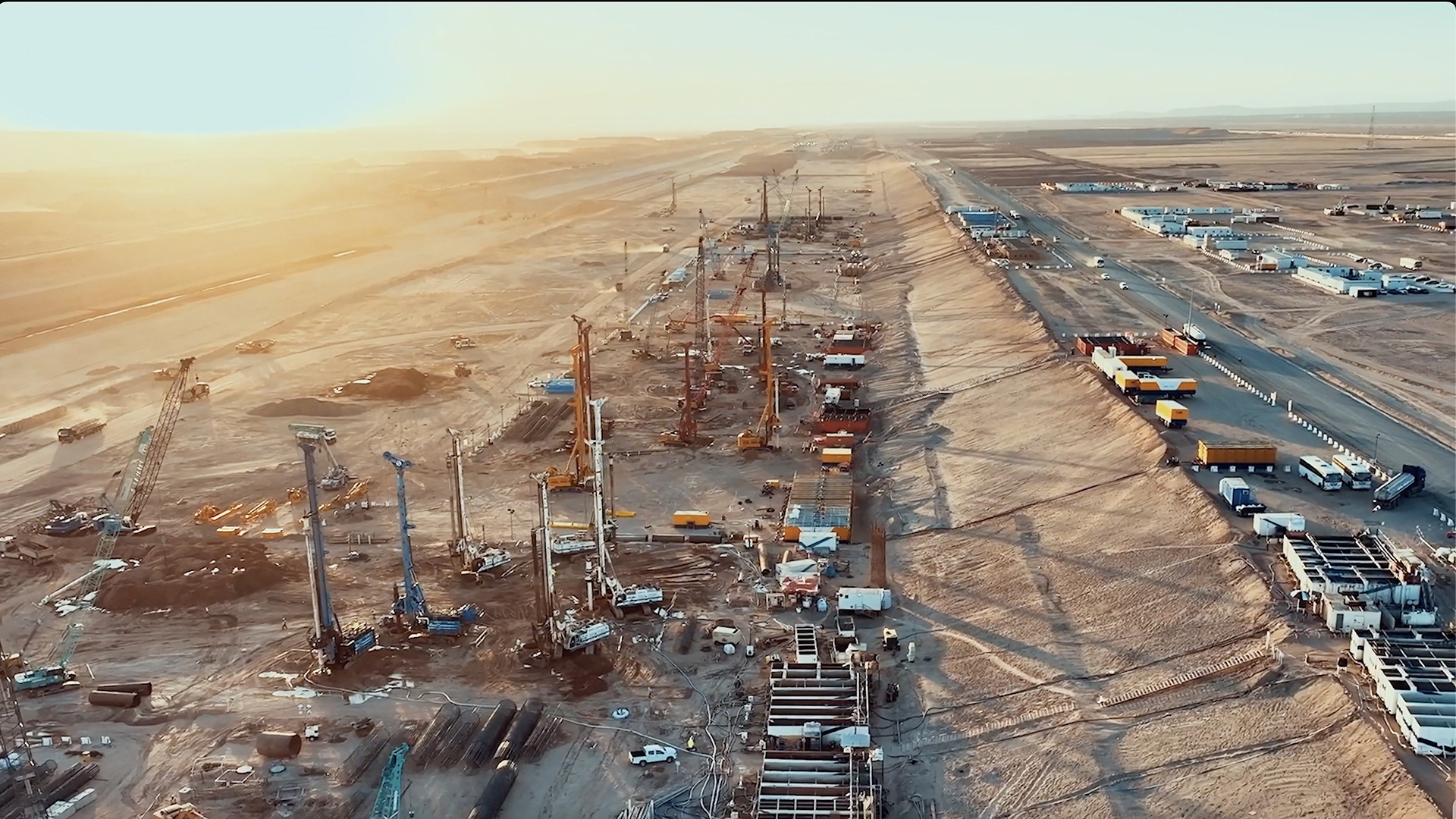
Saudi Arabia’s Vision 2030 fuels order books of India’s infrastructure companies
NEW DELHI : Saudi Arabia’s ambitious blueprint for economic development, called Vision 2030, has been fuelling the order books of Indian infrastructure companies for the past five years and is expected to play a significant role in going forward as well.
Engineering major Larsen & Toubro has seen a surge in orders from Saudi Arabia, which now accounts for 80-90 percent of its overseas orders. Other engineering, procurement and construction companies have bagged jobs too for infrastructure, hydrocarbon, and construction projects.
Last week, the Federation of Indian Chambers of Commerce and Industry took a delegation of chief executive officers to Saudi Arabia, where more than 500 Indian companies are operating, with investments of more than $2 billion. Saudi Arabia’s investments in India exceeded $3.3 billion in various economic and commercial sectors.
During their visit, FICCI Secretary-general Mr. S K Pathak highlighted that Indian companies are playing a large role in the development of Saudi Arabia’s Vision 2030, especially for projects in NEOM, the urban area being built in the country.
“This is just the beginning,” Mr. Pathak said. “The entire NEOM city is phased over a trillion dollars. Indian companies will get a large share of that.”
According to Saleh bin Eid Al Hussain, the Saudi Arabian ambassador to India, Saudi Arabia is also the fourth-largest trading partner of India, while India is the second-largest trading partner of Saudi Arabia. Bilateral trade was close to $43 billion in FY23, with imports from Saudi Arabia worth about $30 billion.
During FY15, bilateral trade stood at about $39.4 billion, comprised mostly of imports from Saudi Arabia of $28.2 billion.
Ties between the two nations have transformed significantly in recent years.
“The decade-plus experience Indian companies have in West Asian countries has added to the confidence of foreign governments in Indian companies and has helped boost project awarding to Indian firms,” Afaq Hussain, Director and founding member of the Bureau of Research on Industry and Economic Fundamentals (BRIEF), told.
Hussain added that Indian companies have proved their capability to live up to the technical standards of new tenders emerging out of West Asian countries.
Mr. Pinak R Chakravarty, former secretary in the Ministry of External Affairs, told that India’s development over the past decades and the increasing technical complexity of infrastructure projects executed in India over the same time has demonstrated the capability of Indian companies when it comes to global tenders.
“Projects like the Bandra-Worli Sea Link, Delhi Metro and others have highlighted the capabilities of Indian infrastructure companies to the world,” Chakravarty said.
What is also notable is that as compared to the early 2010s, more Indian infrastructure companies are qualifying for global tenders, not just in Saudi Arabia but across the world as they increasingly adopt global standards, industry executives said.
A senior executive from an infrastructure conglomerate operating in both India and Saudi Arabia said, “Back in 2011-2012, global tenders would have one big name from India. But if you look at recent tenders, out of 10 companies that would have bid for the tender, four to five will be an Indian company or a company working with an Indian partner.”
Larsen & Toubro’s chief financial officer R Shankar Raman told Moneycontrol in an interview on February 3 that the company has a $15-16 billion order book from Saudi Arabia, of which a significant portion is from Aramco, the world’s largest oil and gas company.
He added that the overall market potential of the Kingdom is about $250 billion a year.
Vimal Kejriwal, MD & CEO of KEC International, told that it is eyeing transmission and distribution projects in Saudi Arabia, which is the largest export contributor to the company’s Rs 38,000 crore order book.
Way Ahead
Indian companies are also awaiting more opportunities from joint working groups (JWG) of the two countries to channelise the $100 billion in investments promised by the Saudi side during Crown Prince Mohammed bin Salman Al Saud‘s visit to India in February 2019.
Closer home, the $50 billion West Coast refinery in India, a mega plant to be set up by Saudi Aramco, Abu Dhabi National Oil Company and Indian companies is expected to be a major project that can benefit Indian companies.
India and Saudi Arabia have set up a Strategic Partnership Council (SPC), co-chaired by the Prime Minister of India and the Crown Prince of the Kingdom, which is revving up bilateral relations. The SPC covers various sectors of cooperation and has two committees headed by ministers – one on political, security, social, and cultural cooperation and one on economy and investments.
Under these two pillars, there are eight joint working groups. The economy and investment pillar consists of four working groups covering industry and infrastructure; agriculture and food security; IT and technology; and energy.
The first summit of the SPC took place during the state visit of Saudi Crown Prince Mohammed Bin Salman on September 11, 2023. The meeting marked a new milestone in India-Saudi bilateral ties and underlined burgeoning commercial engagements.

